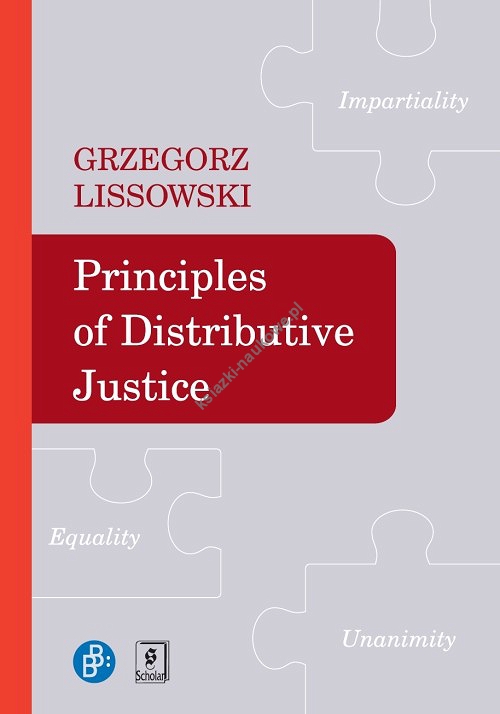Principles of Didtributive Justice
- Producent: Scholar
-
Dostępność:
Produkt dostępny
- szt.
- 105,84 zł
Tytuł: Principles of Didtributive Justice
Autor: Lissowski Grzegorz
Rok: 2019
Format: 17.0x24.6
Stron: 384
Okładka: Twarda
ISBN: 9788373836037
Autor: Lissowski Grzegorz
Rok: 2019
Format: 17.0x24.6
Stron: 384
Okładka: Twarda
ISBN: 9788373836037
There is constant debate around the questions of what constitutes the 'just' distribution of goods and how we can assess existing distribution patterns. Some commentators mistakenly believe that there can be one simple, all-encompassing governing principle that automatically yields the 'fairest' results. In this book Grzegorz Lissowski argues that three types of principles need to be distinguished according to three requirements of
justice: equality, impartiality, and unanimity.
The principle of equality regulates the results of the division of goods impartiality concerns the characteristics of the method applied unanimity the mutual agreement of all parties involved in the division. A thorough examination of the properties of these principles of justice allows for a rational choice of the principle that is suited best to any given situation.
Each chapter is written in two parts, the first offering an general overview suitable for any interested reader, the second – marked with an asterisk – for those interested in the more detailed justifications of arguments brought forward.
Lissowski’s book presents and systematises the results of studies about various aspects of the division of goods, carried out over the past forty years. The work is unique in the world literature because of the key idea of linking division principles with three of their aspects: equality, impartiality, and unanimity.
Prof. Tadeusz Krauze
Hofstra University, New York
Lissowski sums up his many years of research, and he reaffirms his strong position in the international literature which he has achieved by publishing several articles in renowned American journals (e.g. American Political Science Review).
Prof. Piotr Sztompka
Jagiellonian University
Grzegorz Lissowski is sociology professor at the University of Warsaw. His major fields of study are: mathematical and statistical models in social science, formal theory, decision theory, especially social choice theory.

